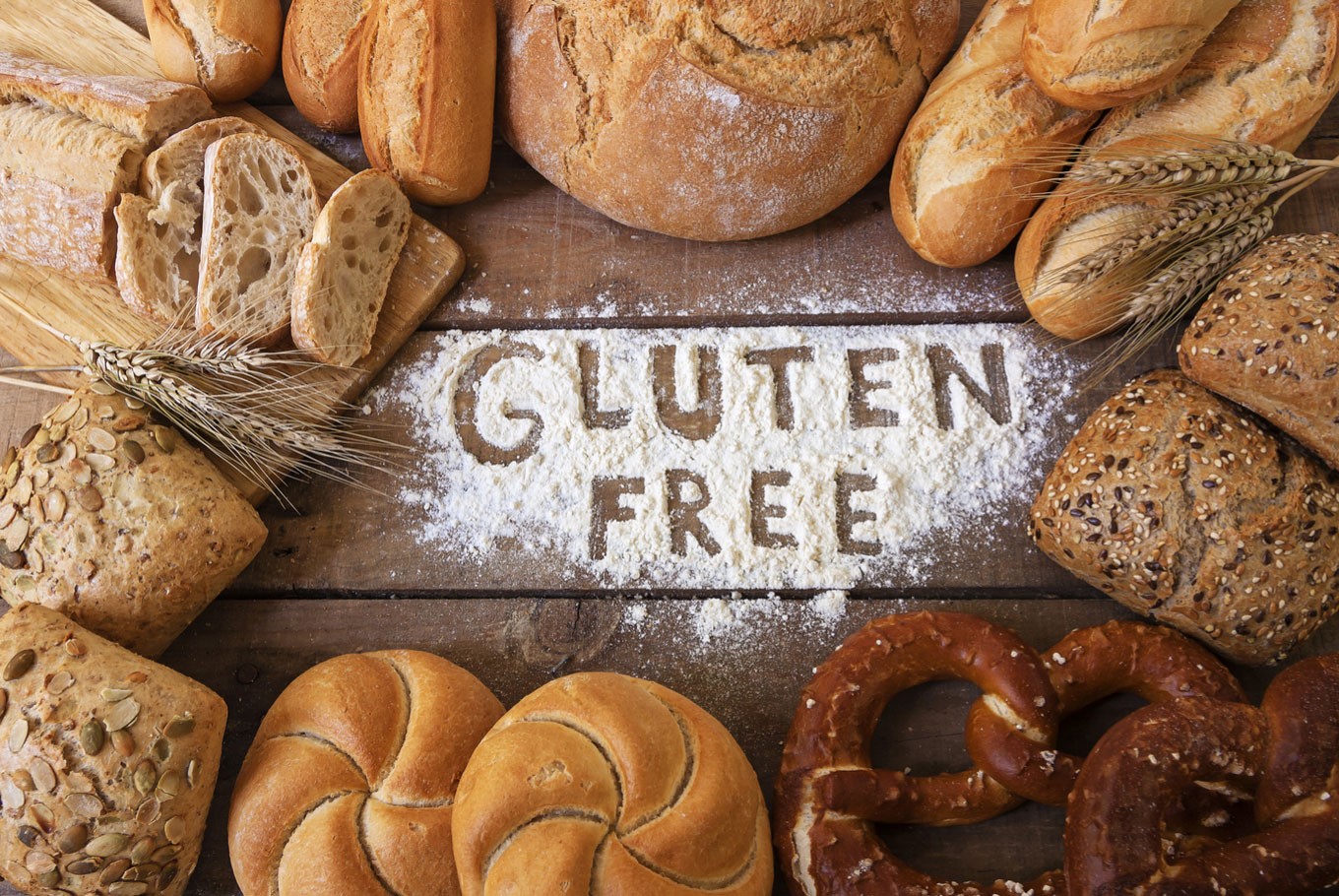Why a gluten-free diet is not for everybody
Recently, the gluten-free diet has become a trend due to claims about its health benefits. However, is such a diet good for everybody?
Change Size
 The gluten-free diet is primarily intended for those who suffer from celiac disease, which is a condition where the body cannot digest gluten contained in food. (Shutterstock/File)
The gluten-free diet is primarily intended for those who suffer from celiac disease, which is a condition where the body cannot digest gluten contained in food. (Shutterstock/File)
A gluten-free diet is a diet where gluten is not included in daily meals.
Gluten itself is a type of protein found in seeds, primarily wheat, rye and barley. In processed products, gluten can help the rising process of bread and give it a chewy texture. Recently, the gluten-free diet has become a trend due to claims about its health benefits. However, is such a diet good for everybody?
Gluten-free diet for celiac disease sufferers
The gluten-free diet is primarily intended for those who suffer from celiac disease, which is a condition where the body cannot digest gluten contained in food. Due to its indigestible manner, the body interprets gluten as a threat and then produces an antibody that backfires to the small intestinal lining, resulting in swelling and damage in the small intestinal lining tissues. The damage of these linings causes a decrease of the intestine’s ability to absorb iron going into the body. This is dangerous for our health because iron absorption takes place mostly in the small intestine. Celiac disease sufferers usually also experience diarrhea, anemia, pain in the bones and even patches on the skin. Celiac disease attacks people of various ages and usually happens without special symptoms.
There is not yet medication to fully cure celiac disease. Treatment that can decrease the symptoms of celiac disease is the one and only gluten free diet. Celiac disease sufferers must avoid gluten containing foods. The amount of gluten contained does not matter because a small amount of gluten can trigger the immune system to attack the intestinal lining.
Gluten-free diet for autism sufferers
Aside for celiac disease sufferers, gluten-free diet can also be addressed to those with autism spectrum disorder sufferers or autism. Autism sufferers usually adopt a Gluten Free Casein Free (GFCF) diet, which eliminates all gluten and casein contained in their daily meals. For autism sufferers, gluten and casein that goes into the body cannot be digested thoroughly, which will then be interpreted as a hostile component by the brain. This causes autism sufferers to go through behavioral changes. By eliminating gluten and casein, we can expect some cognitive enhancement in autism sufferers.
Gluten-free diet for non-celiac gluten sensitivity sufferers
There are some people who are sensitive to gluten contained in foods. Further examination is required to determine whether a person suffers from celiac disease, sensitive to gluten, or just allergic to wheat. Even though the symptoms are more or less the same (diarhea, stomachache, and other symptoms appearing around a few hours to a few days post gluten consumption), the impact inflicted is not as bad as celiac disease.
(Read also: Diet rules made to be broken)
Can one adopt a gluten-free diet if one doesn’t have none of the above conditions?
What if you don't suffer from any of the above condition yet still want to do a gluten-free diet? The following are a few things that can help you consider whether this diet can suit your lifestyle.
Your choices of food will be significantly limited
When you decide to do a gluten-free diet, you’ll have to say goodbye to the foods you often consume on daily basis. Bread, biscuits, oats, pasta, various pastries, all processed wheat products are a no-no. Although the food market is now flooded with gluten-free labeled foods, they can be priced twice as much compared to regular ones. Aside from that, these alternative foods can have higher calories and saturated fats too.
Gluten-free foods often have incomplete nutrients
Those who are obligated to do gluten-free diet due to certain condition is recommended to consult with doctors and also a nutritionist because most gluten containing foods are staple foods that are often consumed on daily basis. By eliminating those kinds of foods, food choices for them become limited. Without consultation, people who undergo gluten free diet have a risk of deficiency of vitamins, mineral and fiber.
You may need food supplement
Gluten-free products sold at the market generally contains lack of vitamins and minerals such as vitamin B, calcium, iron, magnesium and fiber. Celiac disease sufferers are recommended to take extra vitamins to prevent the mentioned vitamin and mineral deficiency.
Gluten is difficult to digest
Gluten has been claimed to trigger health problems. As reported by the Washington Post, Alessio Fasano, founder and director of Center for Celiac Research & Treatment in Massachusetts General Hospital, says that it is true that there are no enzyme found in the body to properly digest the complex protein contained in gluten. When the immune system detects the existence of gluten, it will try to fight and eliminates gluten from the body. But for some people, our immune system is somehow able to cope with gluten. (kes)










